Eggplants grow best in compost-rich, fertile soil under the full sun. Eggplant is a hot weather vegetable that you can grow in small gardens or containers. Vegetable plants produce the most when they have access to a lot of nutrients. So, you should check the main fertilizer ingredients that your plants thrive on. Let’s check out the the best fertilizer for Eggplant.
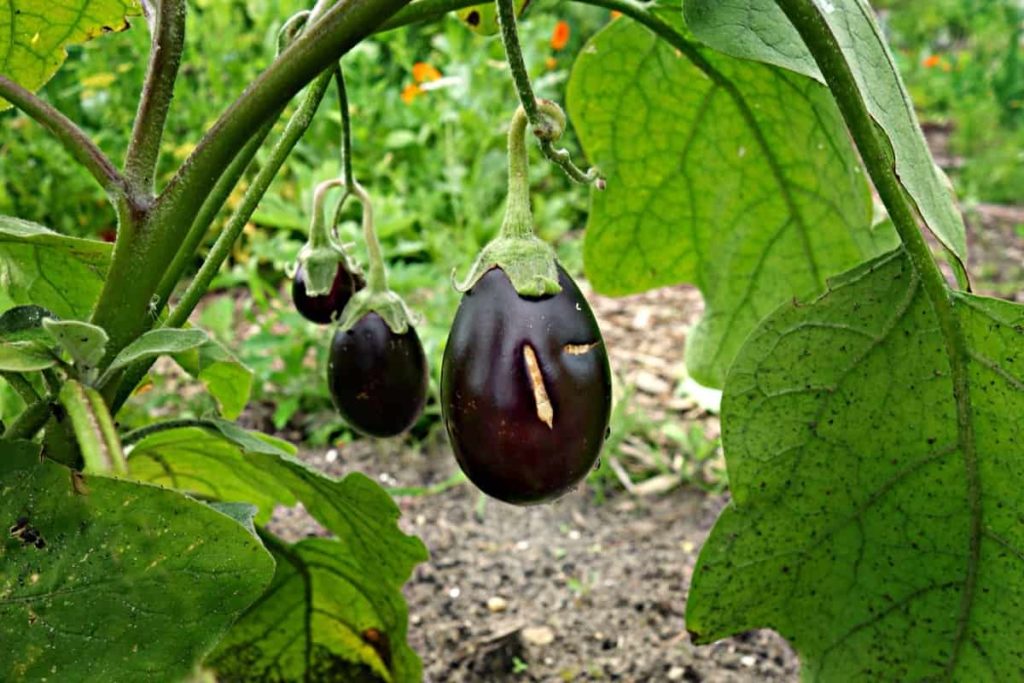
Feeding Eggplants during their growing and fruiting stages improve the overall health of the plant. Healthy Eggplants produce large fruits in large quantities. Also, some types of Eggplant can reduce bitterness due to pressure from fertilizer plants while growing. Fertilizer is important for Eggplant, especially if you want to get as much as you can from them. You should regularly fertilize your Eggplants to ensure they can grow to the best of their ability. If you don’t give them the nutrients they need, they will become weak and don’t produce Eggplants.
If you’re growing Eggplant in your garden, you’ll need to make sure you give it enough nutrients to grow properly. You should consider what type of fertilizer will give you the expected results. Fertilizer can be organic, chemical. Organic manure is made up of animal or plant waste products. It provides soil with stable, slow-release nutrients. This ensures that your plants get the nutrients they need and keep them healthy. Chemical fertilizers are made up of inorganic materials. These provide immediate release nutrition which is particularly important for growing plants that need immediate growth.
Best fertilizer for Eggplant
Organic fertilizers for Eggplant
Cottonseed meal
When using cottonseed meal for Eggplants, apply a 2.5 to 5 centimeters layer on the classified area. If the soil is extremely bad, use a cottonseed meal feed in the quantity of 3.5 to 4.5 kg per 30 meters.
Bat guano
When using the powder or palette form of the bat guano, sprinkle it only around the base of your plants and water it well. You can also add 2 to 3 teaspoons to a gallon of water and pour it onto your Eggplants. A bat guano tea can be used as a foliar spray or poured on Eggplant roots.
Seaweed
The fertilizer produced from the seaweed is a great source of nutrients and trace elements for Eggplants grown in containers or even plants grown on the ground. Seaweed manure is an organic plant food that enhances the overall health of Eggplant.
In case you miss this: Eggplant Companion Plants, Planting Guide
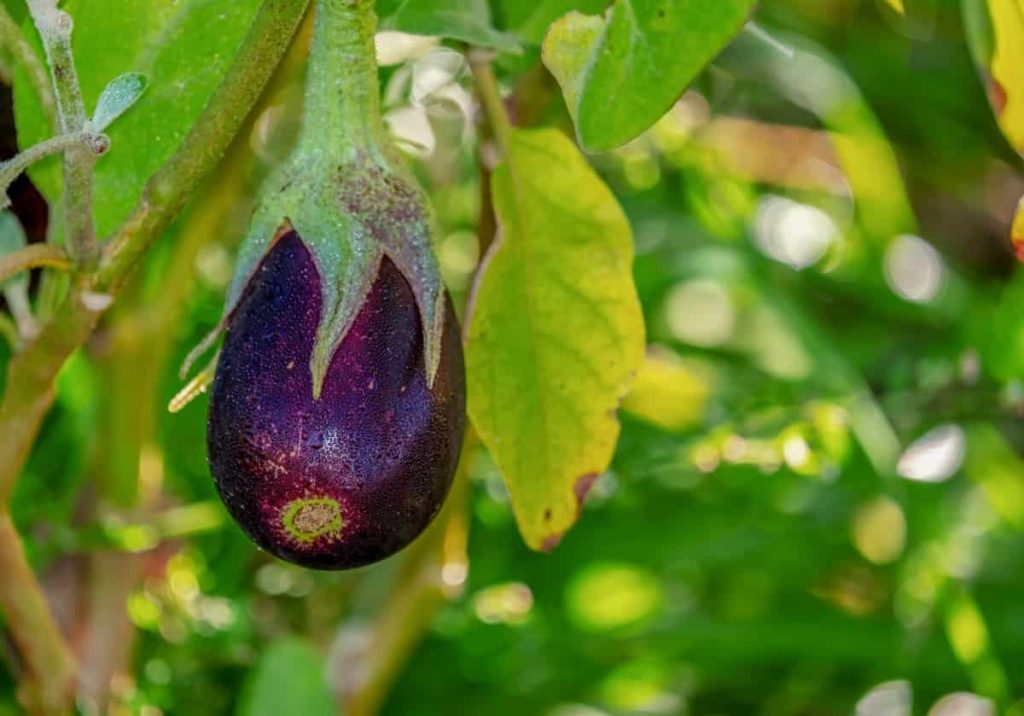
Compost manure for Eggplant
- Eggplant-like fertile, well-drained soil sown with lots of organic matter. Adding fertilizer or well rotten manure around your plants is always a good idea.
- Farmyard manure – Farmyard manure refers to a rotten mixture of farm animal dung and urine and left to the material with dirt and from the rough or fodder fed to cattle. On average, well-rotten farmyard fertilizers have 0.5% N, 0.2% P2O5 and 0.5% K2O. For good production of Eggplant, 15 to 20 tonnes of well rotten FYM are added to the soil.
Homemade fertilizers for Eggplant
Neem Cake
It also acts as a bio-fertilizer by providing the required nutrients, nitrogen, and phosphorus required for the growth of Eggplant. Its use ensures higher crop production.
Wood ash
Wood ash is an easily available source of potassium, calcium, and magnesium which is essential for plant health. Take 1/2 kg vermicompost, 1/2 kg neem cake, 1/2 kg wood ash, 1/2 kg cattle compost all in a bowl and mix everything well. Remove the top layer of the soil adds a mixture of well-mixed manure to the pot. Then cover the mixture again with the soil of the surface.
In case you miss this: Eggplant Gardening Frequently Asked Questions (FAQs)
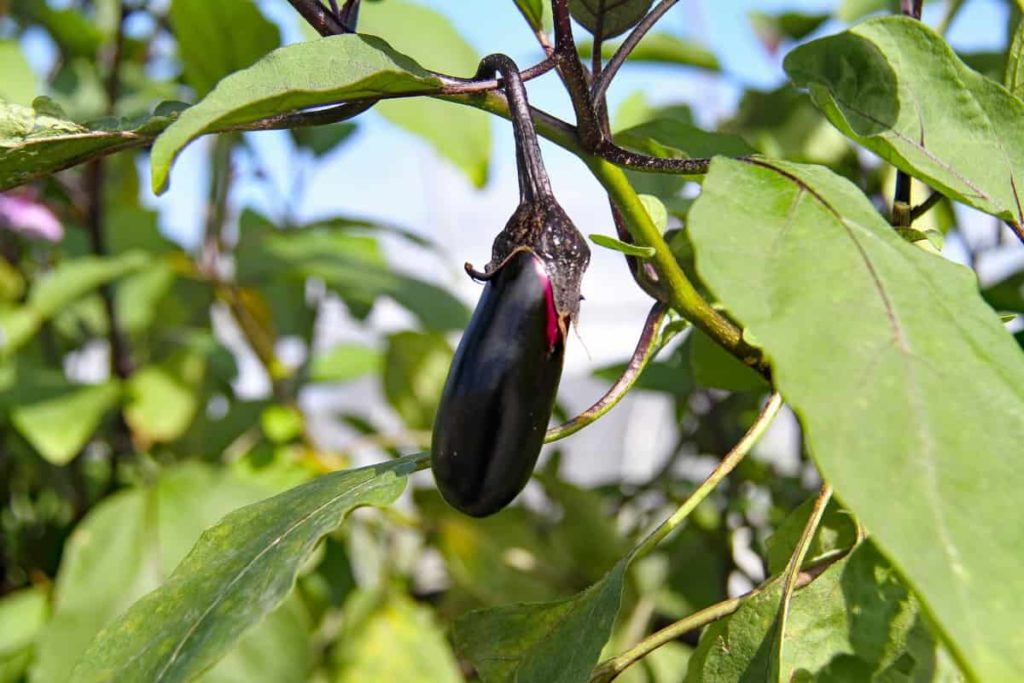
Liquid fertilizers for Eggplant
- Manure tea – Cow manure influences the number of fruits per plant, length of fruits, the diameter of fruits, and weight of fruits per plant. When you add cow manure to the growing area of your Eggplant, it helps the plant by holding water to the soil needed by the plants, and it also gives the soil a good structure, resulting in light, bloated soil that is not compacted. Heavy soil can benefit a lot when you add cow manure. Eggplants need well-drained soil that is full of nutrients, and that’s what cow manure provides.
- When the first flower appears, spray the plants with a seaweed extract, with a teaspoon of Epsom salt per gallon dissolved. This solution improves the fruit set.
Commercial fertilizers for Eggplant
Fertilizers can be chemically produced or come from natural sources such as plant matter, animal fertilizer, or minerals found in rock. Powder, palette, or granules can be applied between rows or as side-dressing in soil based on Eggplant. Fertilizers applied in this way should work in the dirt to prevent heavy rain from spraying fertilizer on the plant. Since plants can absorb nutrients through their leaves, foliar feeding is an alternative way to the Eggplant.
Use commercial liquid fertilizer designed for foliar feeding or make your own with thin manure tea. Apply this liquid as a fine spray, early in the morning when the temperature around is cool. Finally, gardeners cannot go wrong when choosing quality tomato manure when there is doubt about composting the Eggplant. Like tomatoes, Eggplants are members of the nightshade family and have similar nutritional needs.
In case you miss this: Eggplant Growing Tips, Ideas, Secrets, Techniques
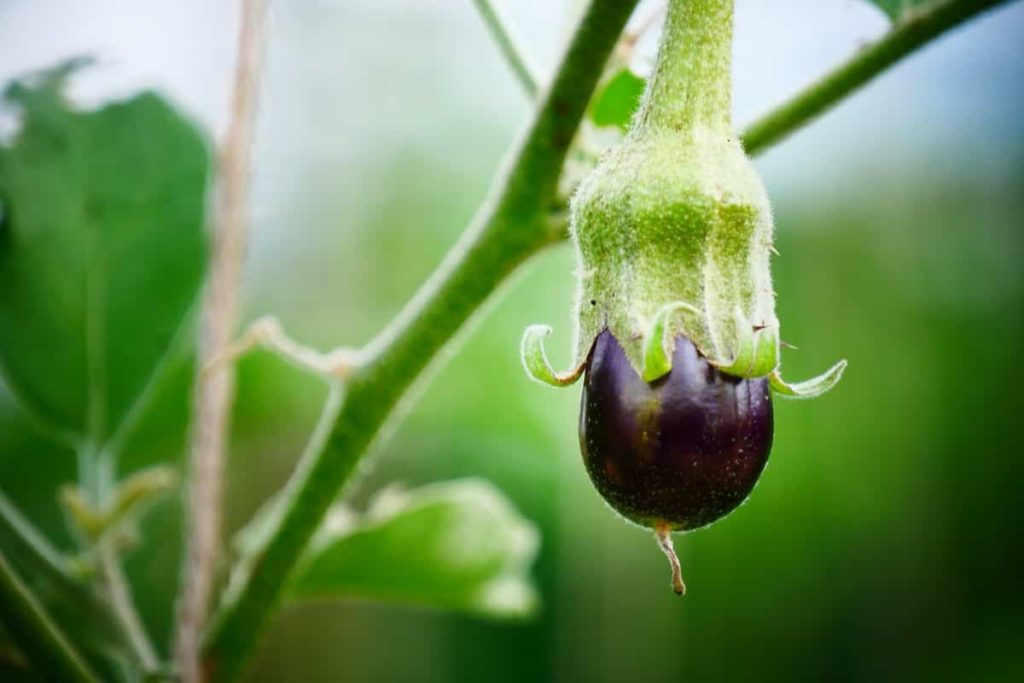
NPK ratio
Although Eggplant is a relatively simple plant to grow, they are heavy feeders. The plant can be improved with the addition of fertilizer. Before planting outside, add 2 to 3 inches of well rotten manure in the soil. If manure is not available, select 10-10-10 fertilizer instead. Once the fruit starts appearing on the Eggplant, you can use 10-20-20 fertilizer or 10-30-10 fertilizer.
Eggplant fertilizer schedule
- Mix manure or 10-10-10 fertilizer in the ground at least 6 inches to provide increasing fertilization to the roots of the Eggplants.
- Mix manure or fertilizer with a shovel in soil. As much as possible, work together to 6 inches deep or more so that the feed is available as the Eggplant roots are long. Plant Eggplant seeds or transplant seeding into the ground.
- Look at the Eggplant first to make flowers and wait for the shape of the growing little fruit. Spread around plants a circle of 6 to 8 inches wide 10-20-20 or 10-30-10 manure, called side-dressing, using a total of 450 to 680 grams for a 100-square-foot area. Add feed at a depth of 3 to 4 inches. When you mix fertilizer, be careful not to dig too close to the Eggplant otherwise you will disturb or rip the roots.
- Harvest your first crop of Eggplant and reapply 10-20-20 or 10-30-10 fertilizer side dressing. Since Eggplant production will continue, more fertilizer uses can be added every two weeks if desired.
In case you miss this: Growing Eggplant in Aquaponics (Baigan/Brinjal/Vankaya)
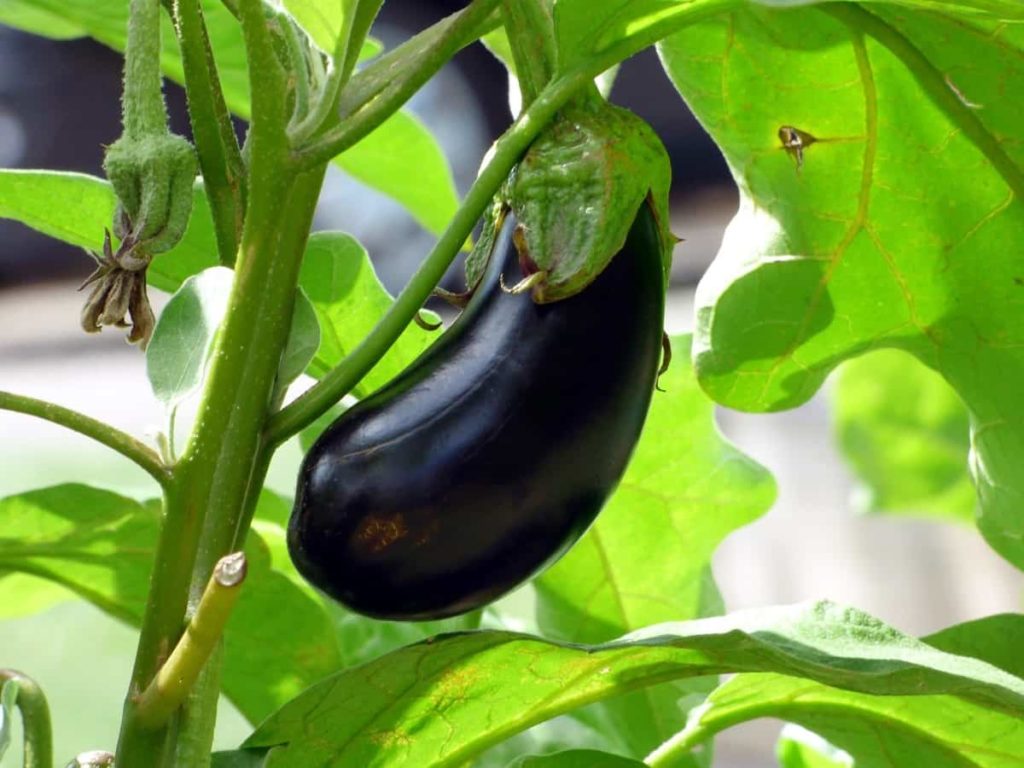
How to fertilize Eggplant in pots
When it comes to fertilizers in pots, Eggplant plants are heavy feeders and need the right amount of fertilizer. Prepare a soil mixture with 1/4 compost and equally rotten cow manure or chicken manure. Add this fertilizer during the growing season as well. Eggplants are heavy feeders, but avoid adding high levels of nitrogen fertilizer as this will result in more green leaves than fruit. Once the first one starts to bloom on the plant, you can fertilize the plants with liquid fertilizers. There are great liquid fertilizer options to choose from seaweed, fish emulations.
Frequently asked questions about fertilizers for Eggplant (FAQ)
How can we increase Eggplant production?
Eggplant is a long-term crop; high yield requires a good quantity of manure and fertilizers.
Why is my Eggplant not bearing fruit?
Eggplants become stressed and stop producing fruit for many reasons, mainly inadequate water and temperature above 32°C. In addition to dry conditions, flowers can fall due to cold weather, pollination problems, soil deficiency, or pest damage.
In case you miss this: Eggplant Seed Germination, Growing Eggplant from Seed
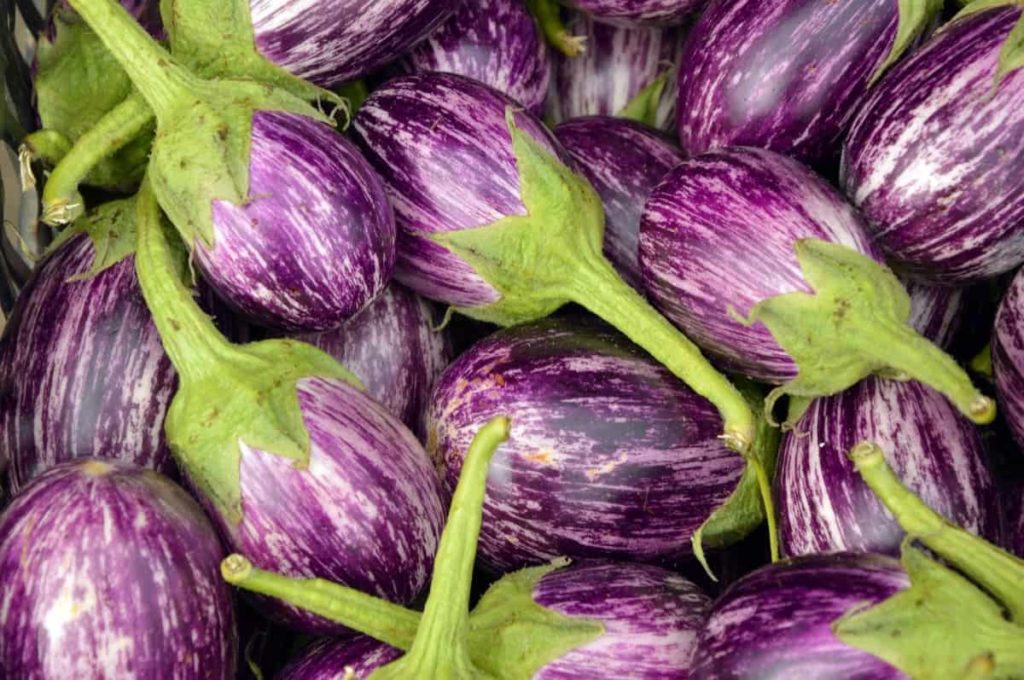
Is potash good for Eggplant?
Eggplants thoroughly enjoy compost and manured soil so add potash, dolomite, blood and bone, and dynamic lifter to the soil two weeks before planting.
Is calcium nitrate good for Eggplant?
Generally, vegetable plants benefit from calcium and nitrogen fertilizers. Some examples are Eggplants, Chilies, Broccoli, and Spinach.
Is fish manure good for Eggplant?
Summer crops such as Tomatoes, Chilies, and Eggplant will benefit from the side dressing of organic fertilizer when they set the fruit for the first time and then every 4 to 6 weeks thereafter. The alternative is to water the dilute solution of fish emulation, seaweed extract, or kelp meal every 10 days.
How do you apply urea fertilizer to the Eggplant?
Apply urea at the rate of 1 tablespoon per gallon of water 7 days after emergence. To avoid burning the leaves, sprinkle water on the seedlings immediately after applying fertilizer.
Are eggshells good for Eggplant?
Plants like Tomatoes, Chilies, and Eggplant saplings will benefit from shell fertilizers.
- Broccoli Seed Germination and Selection
- Asparagus Seed Germination and Variety Selection
- Seasonal Flower Gardening: Best Practices for Spring, Summer, Fall, and Winter
- How to Grow Hibiscus from Flower
- Plantation Ideas for Home Decoration: A Beginners Guide
- Flower Garden Designs and Layouts for Beginners
- Planting and Spacing Techniques in Papaya: A Beginner’s Guide
- Growing Gold: Essential Techniques for Planting Pineapples
- How to Make Kalanchoe Plant Bushy: Home Remedies and Solutions
- 11 Reasons Why Your Gardenia is Not Blooming: Home Remedies and Solutions
- Eco Elegance: The Guide to Designing a Drought-Tolerant Landscape
- Gardening on a Slope: Strategies for Hillside Landscaping
- Nourish and Flourish: Top Organic Mulches for Thriving House Plants
- Everything You Want to Know about Indian Mogra Flower: Discover Uses and Growing
- Green Thumb Success: Expert Tips for Cultivating Greenhouse Pumpkins All Year Round
- Maximize Growth & Flavor: The Ultimate Guide to Companion Planting in Herb Gardens
- How to Control Rhododendron Problems Naturally: Home Remedies and Organic Ways to Fix Them
- Natural Magic: The Remarkable Benefits of Cinnamon for Plants
- Best Steps to Revive Dying Tulip with Natural and Organic Treatment
- 10 Reasons Why Your Angel Trumpet is Not Blooming: Remedies and Treatment
- How to Fix Periwinkle Leaf and Flower-Related Problems: Natural Remedies and Solutions
- How to Fix Zinnias Leaf and Flower Problems: Discover Natural and Home Remedies
- Organic Steps to Induce Lemon Tree Flowers: A Comprehensive Guide
- Bloom Booster: Crafting the Perfect Homemade Bougainvillea Fertilizer
- Optimizing Growth: A Guide to Applying NPK Fertilizer for Potted Plants
- 10 Best Homemade Fertilizers for Rubber Plant: DIY Recipes and Application Method
- How to Boost Female Pumpkin Flowers: Effective Steps for More Flowers and High Yields
- Transform Your Indoor Garden: Top Benefits of Pink Salt for Houseplants
- 10 Best Homemade Fertilizers for Peacock Plants (Calathea): Easy DIY Guide
- Unlock Blooms: 9 Reasons Why Your Potted Chrysanthemum is Not Blooming
- 8 Reasons Why Your Potted Hibiscus is Not Blooming: Fix it with Simple Solutions
- Unlock Blooms: 9 Key Reasons Your Potted Frangipani Won’t Flower
- 10 Reasons Why Is My Ice Plant Not Blooming: Remedies and Treatment
- 10 Reasons Why My Potted Hydrangea Not Blooming: Treatment and Remedies
- 10 Reasons Why is My Wisteria Not Blooming: Remedies and Treatment
- 10 Reasons Why is My Goldfish Plant Not Blooming: Remedies and Treatment